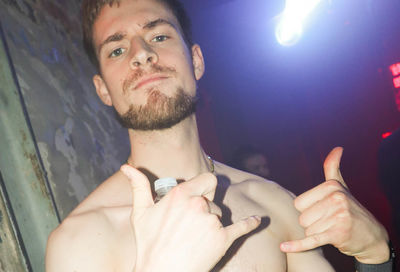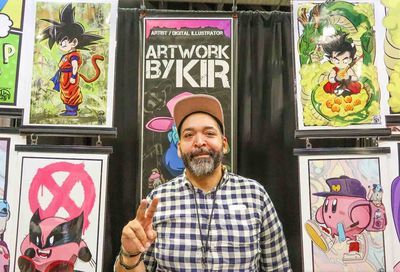Gaydar Testing
Learning Curve
As an official bookworm geek, one of my summer jobs is to read and score AP History exams for the College Board. The College Board folks, who also administer the SAT and other standardized tests to the nation’s ambitious high school students, fly me and about 800 other masochistic scholars to a quiet university campus in Texas, where we spend a week every June sitting in small-group formations under bright indoor lighting, each of us reading as many as 250 U.S. history essays a day. We’re well-fed and well-paid to do this work, which, like any other repetitive factory-style atmosphere, creates a certain camaraderie. I met my girlfriend at the annual AP reading, though the first year I worked there I was miserably certain I was the only out homo in the entire state of Texas.
That year, fresh from a book tour promoting my own work as an out lesbian academic, I was surprised to feel so alone in a giant group of brainiacs. Could it be that there was no one else gay in the rows of smart people around me? Or, as a women’s studies professor from the big bad city, was I simply a different breed altogether than the small-town high school educators I soon befriended?
And this was Texas, the land of sodomy laws, and me a cheery felon. Was it cool to mention this issue of political injustice, perhaps casually, over a bowl of breakfast grits? I was obnoxiously out, wearing rainbow-flag t-shirts each day in the dining hall, hoping others less able to be out would at least see me and know they weren’t alone.
I made an effort, often hilariously misunderstood, to “educate” some of the more sheltered readers. One man puzzled, “But where’s your husband?” A more jovial sort nudged me with her elbow and asked if I’d take her to one of “them bars” sometime to see if a woman might hit on her. One young man, indeed observing the rainbow patch on my backpack, tapped me on the shoulder and simply said “Thanks.”
I discovered a gay and lesbian center just off-campus, and in my limited spare time, attended two events there. Incredibly, the first evening I was there watching a film, the phone hotlines rang twice with suicidal gay teens or their anxious families calling in for help and guidance. Returning to grade high school seniors’ essays the next morning, I wondered how many earnest pages of writing in front of me came from gay students in isolated schools. How many kids were desperately waiting to go away to college, where prying eyes, school bullies and state sodomy laws could be left behind, and where gay history courses and books about our lives beckoned? How many students hoped that I, the AP reader, might assign them a high passing score, grant them college credit, help them win that scholarship out of hell? And was I the only gay reader obsessed with this connection, this sense of protective responsibility?
Reading 250 exams a day, there was no time allowed for such sentiment or personal politics — the essays were either good or bad, and no kid came out as gay on the page, at least not in the 1,500 essays I read. But my thoughtful discussions and rainbow vivaciousness did have an impact. When I returned for my second year as reader, two more women came out to me. This year, my third, still more women came out for the first time, including my hitherto-closeted girlfriend. And, who knows, perhaps some men will jump on the pride wagon in the future. Next year, we plan to hang up a sign: LET’S GET TOGETHER, LAMBDAS!
Meanwhile, what sort of U.S. history are bright students being tested on? Not our history, that’s for sure; this bothered me too. Questions on the AP exams are fiercely protected by the College Board, since ambitious kids and slackers/cheaters all want to know in advance what to study for. But without revealing anything, I can assert that complex questions about the nation’s development and civil rights progress never inquire about the contributions of homosexuals. Where it was once possible to go from nursery school to a law degree without ever studying women’s roles and achievements, it’s still not considered part of a well-rounded education to look at the evolution of gay cultures across time.
Thus during my sojourns to Texas I’m not just an out lesbian — I’m an out lesbian who is learned in the history of lesbian cultures, a category of academic specialization wildly irrelevant to most high school teachers, however liberal. But the bright kids whose essays we’re evaluating do indeed have the option of pursuing queer studies degrees, presenting papers, writing books, perhaps attending the Lavender Languages and Linguistics conference which meets annually in D.C. at American University. At the Michigan women’s music festival this summer, I know I’ll meet, without knowing I’m meeting, some young woman whose essay I just graded.
Meanwhile, the sodomy laws of Texas meet the Supreme Court this summer in a ruling we all await with anxious hearts. I’m proud to take some risks each June in Texas –it’s easy for me to do, all grown up and protected in D.C. But I’m still a new and important kind of human “experience” for more sheltered readers who otherwise might think they’ve never met a gay scholar. I got an unexpected boost from the College Board this year, because the administrators brought in, as our special evening entertainment, a brilliant speaker and historian: Blanche Wiesen Cook, who publicly thanked her female partner from the stage. Sitting in the audience with the few others who have dared to come out, I realized that I don’t have to go off-campus to find my people any more.
Bonnie J. Morris, Ph.D., is on the women’s studies faculty at George Washington University and Georgetown University. She can be reached at bmorris@metroweekly.com.
Support Metro Weekly’s Journalism
These are challenging times for news organizations. And yet it’s crucial we stay active and provide vital resources and information to both our local readers and the world. So won’t you please take a moment and consider supporting Metro Weekly with a membership? For as little as $5 a month, you can help ensure Metro Weekly magazine and MetroWeekly.com remain free, viable resources as we provide the best, most diverse, culturally-resonant LGBTQ coverage in both the D.C. region and around the world. Memberships come with exclusive perks and discounts, your own personal digital delivery of each week’s magazine (and an archive), access to our Member's Lounge when it launches this fall, and exclusive members-only items like Metro Weekly Membership Mugs and Tote Bags! Check out all our membership levels here and please join us today!




















